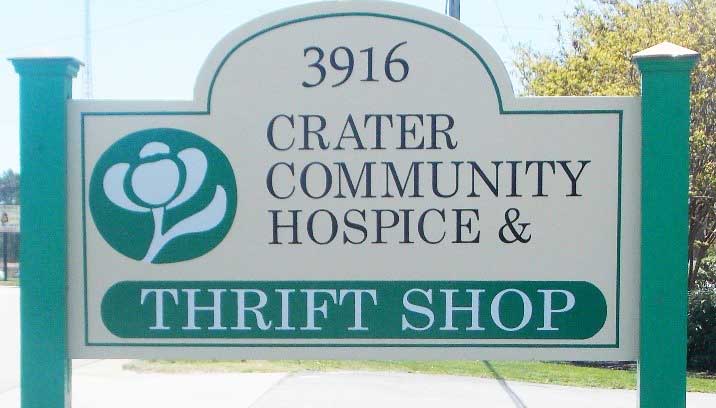What Is Hospice Care
Hospice is a concept of care that was derived from medieval times and symbolizes a place where travelers, pilgrims and the sick, wounded and dying could find rest and peace. Today’s Hospice Care offers a program of care for patients that are facing terminal illness. The focus of Hospice Care is quality of life and comfort care that is delivered compassionately by professionals who specialize in end-of-life challenges.
HISTORY OF CRATER COMMUNITY HOSPICE
Crater Community Hospice was established in 1995 after a need for hospice services was identified by both John Randolph Hospital in Hopewell, VA and Southside Regional Medical Center in Petersburg, VA. At that time both facilities were community hospitals and both recognized that a community-based hospice could better serve the local community. As a non-profit 501 (c) 3 organization, Crater Community Hospice is governed by a local Volunteer Board of Directors and an appointed Chief Executive Officer who is responsible for the day to day management of the organization. Board members live and work in the areas we serve as do our staff and volunteers. With a vested interest in the community, Crater Community Hospice strive to provide not only high-quality hospice services but also multiple community services necessary to improve upon the overall quality of life to all who reside in the area.
MISSION STATEMENT
Crater Community Hospice’s mission is to educate the community on serious illness and end of life concerns and provide families and patients with quality care and supportive services. To share their passion for improving quality of life for those who are facing a life-limiting illness.
CRATER COMMUNITY HOSPICE CORE VALUES
Compassion
To embrace patient and family wishes and to provide physical and spiritual comfort.
Respect
To treat others how THEY would like to be treated.
Accountability
To empower our team to take ownership of their actions and hold the team to high standards.
Teamwork
To combine individual strengths to support the common good of our patients, families, and community.
Empathy
To understand and share the emotions of others.
Reliability
To deliver on our promises, establishing trust, transparency, and dependability.
Community Outreach and Education
One of Crater Community Hospice’s highest priorities is clarifying the role of hospice to our community and offering support through outreach and education. Their team offers a wide variety of community education programs to local churches, civic groups, long-term care facilities and other organizations.
Topics Discussed Include:
- Understanding Hospice and Dispelling Myths
- Grief Support and Education
- Caregiver Support and Resources
- The Importance of Advance Care Planning
- The We Honor Veterans Program
- Hospice Volunteer Opportunities
- Clinical Staff In-Services
- Being Mortal: Documentary
- Educational Webinars offering CEU’s
All of Crater Community Hospice programs can be tailored to meet the needs of all organizations and are always “free of charge.”
Crater Community Hospice Thrift Shops
Crater Community Hospice operate two Thrift Shops to help accent the donations that are received from the community. All proceeds from our shop help to offset the cost of patient care to families in our community.
Thrift Shop Mission
Our Crater Community Hospice Thrift Shops have a dual mission: To provide financial support for hospice care to our patients; and offer high quality, affordable merchandise to the community.
Petersburg Thrift Shop: 3916 S. Crater Road, Petersburg, VA 23805
Hours: Mon. – Sat. 10:00 am – 5:00 pm
Midlothian Thrift Shop: 11401 Midlothian Turnpike, North Chesterfield, VA 23235
Hours: Tue. – Sun. 10:00 am – 7:00 pm
All proceeds from our Thrift Shop help to offset costs of patient care to families in our community. Items that don’t sell may be recycled and turned into donations that help support our mission to “Celebrate Life Every Day”.










